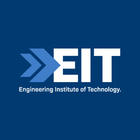Master of Engineering (Industrial Automation)
Master of Engineering (Industrial Automation)
This master’s qualification is inspired and driven by industry, with a strong theoretical underpinning. Concept relevance and knowledge that is critical in this fast-moving work environment has propelled the program design process. Upon completion of this program, you will gain skills and expertise in the latest developing technologies in instrumentation,…
Categories
COURSE DESCRIPTION
This master’s qualification is inspired and driven by industry, with a strong theoretical underpinning. Concept relevance and knowledge that is critical in this fast-moving work environment has propelled the program design process. Upon completion of this program, you will gain skills and expertise in the latest developing technologies in instrumentation, process control, and industrial automation
Program Details
There is a global shortage of automation, instrumentation, and control engineers due to the rapid growth of new industries and technologies.
The Master of Engineering (Industrial Automation) addresses the growth and new technologies in the Industrial Automation industry. The Master of Engineering (Industrial Automation) course offers twelve core modules and a project thesis to provide the knowledge and skills required for this industry. Students with a background in electrical, electronics, mechanical, instrumentation & control, or industrial computer systems engineering would benefit from this program as it prepares them for automation in the process and manufacturing industries.
Furthermore, Industrial Instrumentation identifies key features of widely used measurement techniques and transducers combined with microprocessor devices to create robust and reliable industrial instruments. Industrial Data Communications provides the requisite knowledge to manage modern field buses and industrial wireless systems. Safety Instrumented Systems introduces the common safety philosophy of hazard identification, risk management and risk-based design of protection methods and functional safety systems. SCADA and DCS cover hardware and software systems, evaluation of typical DCS and SCADA systems and configuration of DCS controllers. Advanced Process Control covers advanced control systems, algorithms and applications. Machine Learning for Industrial Automation provides the intelligent control basics in the automation area.
The Project Thesis, as the capstone of the course, requires a high level of personal autonomy and accountability, and reinforces the knowledge and skill base developed in the preceding subjects. As a significant research component of the course, this project will facilitate research, critical evaluation and the application of knowledge and skills with creativity and initiative, enabling students to critique current professional practice in the Industrial Automation industry.
Program Structure
You must complete 48 credit points, comprising twelve core units and one capstone thesis. There are no electives in this program. The program duration is two years full-time. We deliver units over two semesters per year, and you will take four units per semester. There will be a short mid-semester break and extended breaks between semesters.
Teaching Periods – On-Campus : Two teaching periods per year (2 semesters of 15 weeks each per year) with 4 units taken at a time (each semester). Students will complete 8 units per year. There will be scheduled breaks between semesters and at the end of the year. Students study for 30 weeks of the year.
For this course, online option also available.
REQUIREMENTS
To gain entry into this program, applicants need one of the following:
- a recognized 3-year bachelor degree in an engineering qualification in a congruent field of practice.
- an EIT Bachelor of Science (Engineering) degree in a congruent field of practice.
- a 4-year Bachelor of Engineering qualification (or equivalent), that is recognized under the Washington Accord or Engineers Australia, in a congruent, or a different field of practice at the discretion of the Admissions Committee.
- a 4-year Bachelor of Engineering qualification (or equivalent) that is not recognized under the Washington Accord, in a congruent field of practice to this program; AND
- An appropriate level of English Language Proficiency equivalent to an English pass level in an Australian Senior Certificate of Education, or an overall Academic IELTS score of 6.0 with no individual band less than 6.0
EDUCATIONAL INSTITUTION
The Engineering Institute of Technology (EIT) delivers industry driven programs to equip its students with the skills required in the real industrial world. Its study options are available across Perth and Melbourne; and include classroom sessions, practical lab exercises, assessments, class discussions and self-study. Additionally, students enjoy access to industry experts based around the globe through live and interactive online presentations. All EIT programs provide access to remote laboratories and cutting-edge simulation software. Hands-on laboratory practicals are an essential component of EIT’s programs to ensure students put theory into practice. These hands-on workshops cover the major discipline-specific applied skills required for competency in engineering practice.




